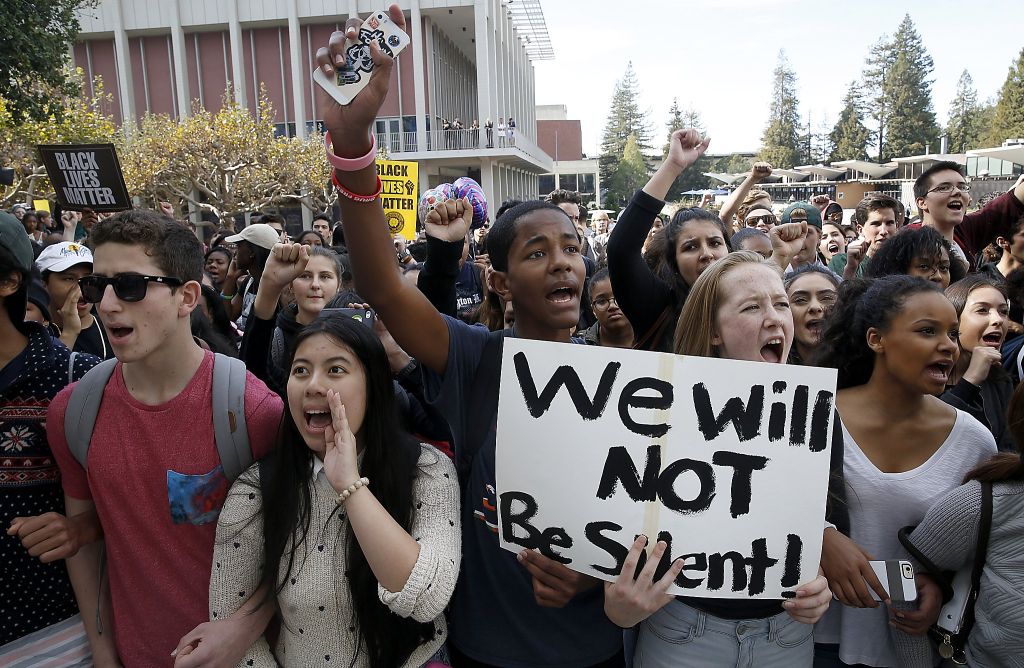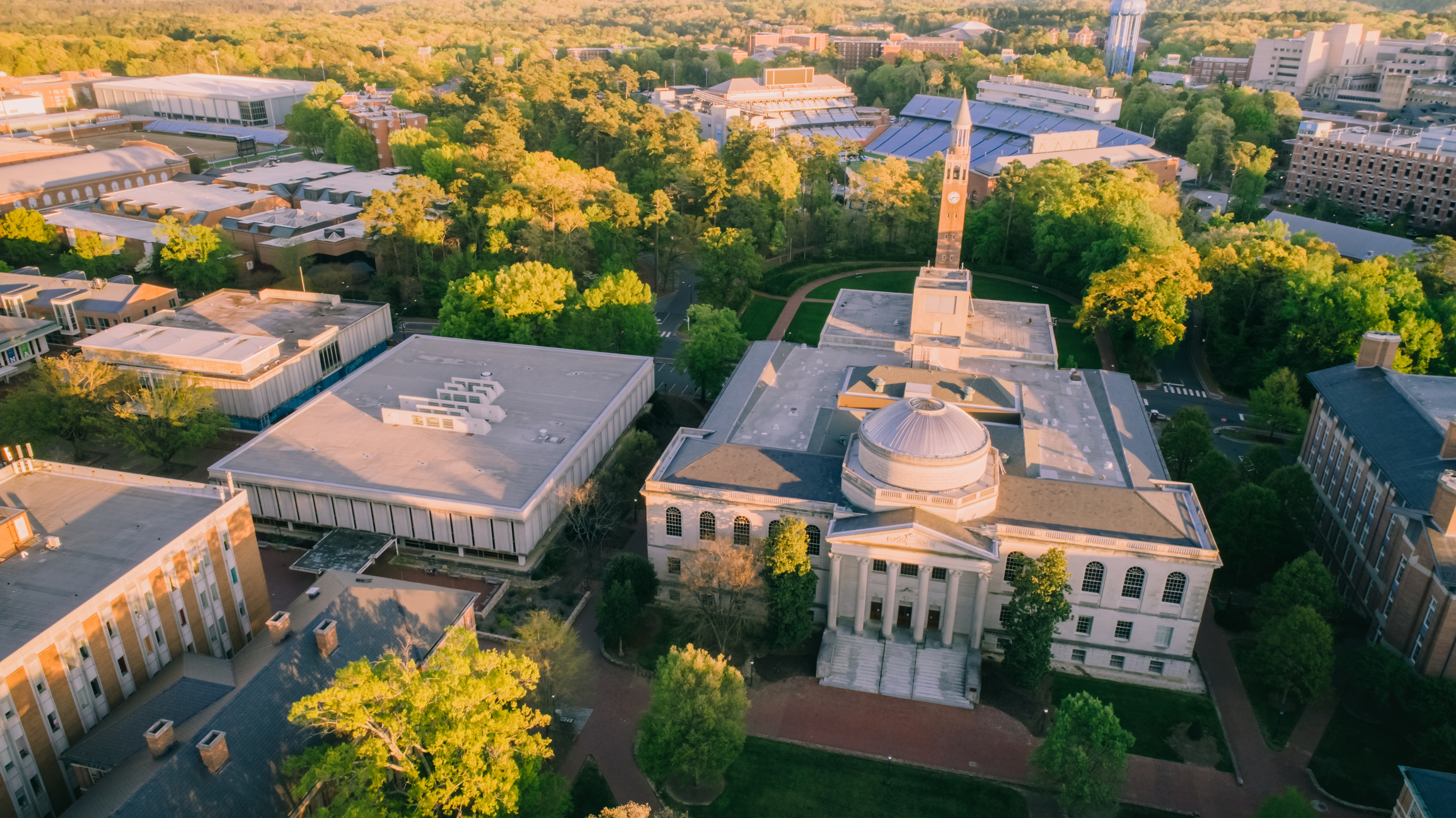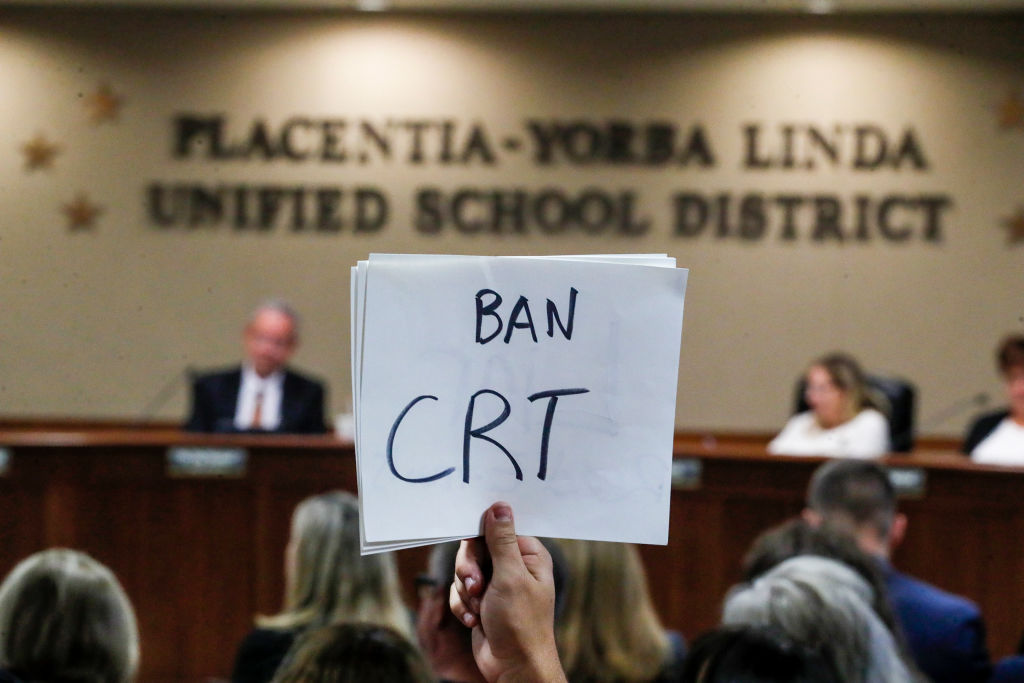Well-meaning Americans are being suckered into an illiberal political cabal.
“Action Civics” Replaces Citizenship with Partisanship

State lawmakers must protect education from activism.
Advocates of “Action Civics” are poised to press a novel practice on every state education system in the Union. Bills mandating Action civics will soon be introduced in state legislatures across the country; it is already required in Massachusetts and Illinois. The Biden administration is likely to support that effort with federal carrots and sticks, using the model of the Obama administration’s support for Common Core.
Unfortunately, widespread adoption of Action Civics will definitively politicize an already politically tainted K-12 educational system, irrevocably cementing the partisan Left’s hold upon our culture. Action civics amounts to school-sponsored indoctrination and political action in support of progressive policy positions. It must be energetically opposed by all who value authentic liberal education.
Despite its growing influence, the goals and premises of Action Civics (sometimes called “Civic Engagement,” “New Civics,” or “Project-Based Civics”) remain little-known to most Americans. The recent report of the President’s Advisory 1776 Commission included a welcome, if brief, warning against Action Civics. The need for a more thoroughgoing critique of Action civics remains urgent, however.
In the absence of expanded public awareness, this pernicious practice could be enshrined in the nation’s schools before the public realizes what it has approved. Americans are disposed to favor requirements in “civics.” Yet the premises and practices of the new Action Civics stand starkly at odds with civic education rightly understood. Under the deceptively soothing heading of “civics,” state legislatures may soon enshrine educational practices that are anything but benign.
Action Civics conceives of itself as a living laboratory in which mere civic theory is put productively into practice. Students, it is held, best acquire civic know-how through direct political action, for example by protesting in favor of gun control or lobbying for legislation to address climate change.
Whereas traditional civic education risks forfeiting a student’s attention with abstract lectures on the structure of our constitutional system, Action Civics is designed to turn a student’s most deeply felt pragmatic concerns toward engagement with the political process. The result is held to be deepened practical knowledge, lifelong learning, and enlarged participation in our collective life.
This is an attractive presentation. Yet what distinguishes classroom-based protest and lobbying from manipulation of a student’s untutored prejudices in the service of a teacher’s or a school’s political agenda? In practice as well as theory, the answer is “far too little.” As one observer rightly put it: “When ‘action’ proceeds from unexamined assumptions, the result is not learning, but indoctrination.”
True civic education conveys the purpose, nature, and contours of our constitutional republic, tells the story of the struggle to uphold its founding principles of equal rights and liberty, and cultivates virtues necessary to the republic’s preservation. What civic education very deliberately does not attempt to do is supply students with substantive political positions. That is for students themselves to determine as free individuals, in the fullness of time.
Reasons for Concern
There is an important distinction to be drawn between responsible civic action on the one hand and what Lincoln called “mobocratic” rule on the other. In the absence of informed and reflective respect for our fundamental rights and the constitutional framework that protects them, civic action risks descent into mobocracy. This helps explain why the right to free expression is endangered at this moment in our civic life.
Our need is not for collective action per se, but for civic action tempered by regard for the rights of others. The ability to explore contending perspectives with patience and respect, including the strength of character to hold one’s own political convictions up to scrutiny, is a virtue essential to the preservation of our republic. That is why debate in various forms has long been a practicum of civics.
Action Civics, to the contrary, skips a step, moving uncritically to turn grievance and anger into protest and lobbying. Too often this has the effect of forestalling self-examination and dampening tolerance of alternative perspectives. Critical self-examination and thoughtful debate are easily avoided in the heat of collective political action. That is why civic education is not the same as political action per se. Civic education is instead a preparation for, and a prerequisite to, mature political life.
Recognizing the essential contestability of your own point of view is the preface to liberty. Learning the ways in which every policy position features strengths, weaknesses, trade-offs, potentially unintended consequences, and often error, encourages us to grant freedom of speech to others rather than merely to demand it for ourselves. Yet by intentionally agitating grievance, and at times even glamorizing the refusal of angry student activists to accord a respectful hearing to contrary views, Action Civics resists acknowledgement of the essential contestability of opinion. In this, it both reflects and exacerbates the tendencies now weakening our fundamental freedoms.
The novelty of Action Civics is a clue to its problematic nature. Earlier educators avoided pressing their students into political activism, not because they were unimaginative teachers but because they recognized the impropriety of imposing political preferences on students. These educators understood how easy it would be for teachers to trade upon their authority for purposes of indoctrination.
At the university level, statements of academic freedom once warned against the abuse of professorial authority to forward political indoctrination. It is a sign of our times that such statements have since been modified to reflect a changed vision of public education, one that takes the inculcation of particular political viewpoints as a positive mission. Particularly in the context of public education, that vision is at odds with the principles and habits of liberty.
Abandoning Neutrality
A pillar of free speech at the university level is the principle of “institutional neutrality.” In upholding institutional neutrality, universities seek to minimize the degree to which they take official institutional stands on controversial issues of public policy. To do so would effectively pressure individual students and faculty into following an official political line, thus inhibiting freedom of thought and discussion. Schools and universities that adopt Action Civics place their neutrality as institutions at risk—something public institutions in particular ought to avoid, given their obligations to the politically diverse citizenry that funds and relies upon them.
Cultivating neutrality, and knowing when to do so, is every bit as necessary to the proper functioning of our democratic republic as is advocacy. Judges and jurors must set personal preferences aside in favor of the law. Journalists must overcome their biases in order to fully and fairly cover political controversies. Officials who supervise elections must do so impartially, without regard to their own partisan interests. So, too, ought teachers to put aside their particular political inclinations as they instruct their students in principles of civic life that apply to all, regardless of policy preference.
This is not only just; it is itself an education. Classrooms can and should model the civic capacity of impartiality by striving to remain neutral on the great public-policy controversies of the day. The fact that the always-imperfect but nonetheless essential aspiration to impartiality has been abandoned by too many journalists, educators, and others at this moment in our civic life lends urgency to this argument.
Advocates of Action Civics can sometimes be straightforward about their intention to deploy it on behalf of a progressive policy agenda. Other practitioners strenuously maintain that Action Civics does not impose a political viewpoint upon students, but merely encourages them to act upon their own pre-existing political convictions. Given the pressures easily and inevitably placed upon students by teachers and peers in classrooms dedicated to direct political action, this is difficult to credit.
A student’s untutored political preferences are easily molded. A teacher may selectively encourage student views he finds congenial while challenging perspectives he disfavors well before they have a chance to inspire action. One or a few students who hold opinions at odds with the rest of a class might be intimidated into silence by a larger number of peers, or drafted into political efforts they do not truly support. This is particularly so given the emphasis of Action Civics on launching collective action on behalf of shared political goals. As group protests and lobbying expeditions are organized, who will want to be left out? Civic education includes the cultivation of independence, “the courage to stand apart from the crowd.” Yet in theory and practice alike, Action Civics discourages independence.
Action Civics under Fire
This assessment of Action Civics is part of a small but growing debate over this novel departure in civic learning. Having laid out some of the issues at stake, it will be helpful to trace the public debate to this point.
The most thoroughgoing critique of Action Civics to date is Making Citizens, a 2017 report for the National Association of Scholars (NAS) by David Randall (with contributions by Ashley Thorne). Randall charges Action Civics with political bias. At its core, he says, this new practice “redefines civics as progressive political activism.” The goal of Action Civics, Randall adds, is nothing less than “’fundamentally transforming’ America” by way of policies such as “de-carbonizing the economy, massively redistributing wealth, intensifying identity group grievance, curtailing the free market, expanding government bureaucracy, elevating international ‘norms’ over American Constitutional law, and disparaging our common history and ideals.”
In his Preface to Making Citizens, NAS President Peter Wood offers a “dictionary of deception,” describing the invariably progressive meanings encoded in the beguilingly soothing vocabulary of Action Civics. Phrases that seem in the abstract to draw upon our hallowed civic traditions, break decisively with those traditions in fact. NAS substantiates these claims with detailed investigations into the history of Action Civics, biographies of its leading practitioners, the sources of its ideology, and the actual practice of Action Civics at several public universities.
Two practitioners of Action Civics—Amy Curran, Oklahoma Executive Director of the group Generation Citizen, and Generation Citizen’s CEO Scott Warren—energetically reject Randall’s charge of political bias. In reality, say Curran and Warren, groups like Generation Citizen organize student political action not in order to encourage progressivism, but because direct political involvement is the most effective way to teach civics to students unmoved by charts, figures, or tests on how a bill becomes a law.
In their 2020 report on Action Civics for the Texas Public Policy Foundation, Tom Lindsay and Lucy Meckler assess the controversy between NAS and Generation Citizen. To determine whether Action Civics almost invariably leads to protests on behalf of progressive political causes, Lindsay and Meckler reviewed 27 political projects listed on the websites of Generation Citizen and its allies. What emerged was an overwhelmingly progressive political bias, examples of which include protests in support of the Green New Deal, various gun control measures, driver’s licenses for undocumented immigrants, opposition to a border wall, etc.
Lindsay and Meckler also reviewed public statements by Generation Citizen’s Director of Policy and Advocacy, Andrew Wilkes, and found that these statements strongly supported progressive positions. Given the contradiction between Generation Citizen’s denial of political bias and the actual content of their projects and statements, Lindsay and Meckler conclude that NAS’s charge of “deceptive language” is credible. Action Civics advocates are sometimes less than frank about the decidedly partisan politics at the heart of their enterprise.
Crucible of Radicals
The built-in progressive bias of Action Civics comes through as well in what is perhaps this movement’s most influential publication, A Crucible Moment: College Learning and Democracy’s Future. Released in 2012 by a White House task force led by the Association of American Colleges and Universities, A Crucible Moment lent the imprimatur of the federal government to Action Civics. The implication of that endorsement was that federal regulation and funding would be deployed to steer universities in this new direction. Follow-on actions by the Department of Education in 2012 confirmed this. A Crucible Moment thus served as a catalyst for the rise of Action Civics in American higher education, and over time at the K-12 level as well.
In subject matter, A Crucible Moment focuses on topics like diversity, sustainability, inequality, and global interdependence. Students are urged to undertake community service and political action at the local and global levels in order to forward “systemic social and political change.” “Shared responsibility for a common future” is a theme as well, so collective action is stressed.
Crucible Moment’s commitment to “global citizenship” is so thoroughgoing that observers have commented on the report’s apparent “alienation from American politics.” “There is much talk in Crucible Moment of ‘local and global generative partnerships,’” notes political theorist Diana Schaub, “but the United States itself is oddly absent.” The word “patriotism” never appears, Schaub adds.
In his brief but penetrating critique of Crucible Moment, political theorist Patrick J. Deneen suggests that the report’s novel vision of civic education is in fact “neither civic nor educative.” Crucible’s stance is not civic, says Deneen, because it is divorced from the ideal of civitas—of citizenship in a particular place with a particular history and polity, i.e., the United States. Crucible’s advocacy is not educative because it inappropriately substitutes the inculcation of substantive policy ends for knowledge of America’s polity.
Here, the issue of political bias returns, and Deneen’s observations on that point are worth highlighting:
Crucible Moment insistently, uncritically, and unself-consciously recommends the formal adoption of a set of substantive political ends—funded at least in part by taxpayer dollars—that would have the effect of giving government and university sanction to a set of partisan political positions. This is not civic education; it is the effort to institutionalize, fund, and advance a partisan platform.
In sum, the novelty of Action Civics lies not merely in its relative neglect of civic education as traditionally conceived, but in its incompatibility with American civic principles. The partisan character of Action Civics endangers freedom of conscience. Its scant regard for neutrality disadvantages those who do not share its policy aims. This, in turn, drives a wedge through the polity. Adding a bit more American history to the mix will not repair Action Civics. This version of civics is simply incompatible with American civic education, rightly understood.
What Should Civics Be Today?
Should we, then, return to education as it was before the advent of Action Civics? Proponents of Action Civics insist that students find traditional civics boring and irrelevant. Are they right? If we ban contemporary controversies from the K-12 classroom for the sake of neutrality, do we forfeit our best chance of holding our students’ attention?
The reply is that American civics, especially as originally conceived and taught, is anything but dull. That earlier approach in particular has been forgotten and needs to be recovered. Nor is civic education obligated to ignore contemporary policy disagreement. On the contrary, the tried-and-true practice of debate pivots around live controversy. Revitalizing and updating the practice of debate will invigorate student interest in civic education. It will also moderate our divisions by encouraging regard for the rights of others. All of this can be done in a way that respects the non-partisan nature of the classroom.
America’s founders created our constitutional republic, yet there was something of great importance they could not create or devise. Founding our tradition of education in America’s own history and civics was necessarily a job for the post-Revolutionary generation. Daniel Webster, a United States congressman, senator, secretary of state, and the greatest American orator of his day, was the true founder of American history and civics. In the years before qualified historians had chronicled America’s story from the Pilgrims through the founding and beyond, Webster’s orations on patriotic occasions traced our history and wove it together with explorations of our civic principles and the virtues required to sustain them.
Webster’s speeches were taught and recited in the schools, not only in his own day but down through the early decades of the 20th century. The speeches of other great leaders and orators were studied as well, along with documents of civic importance. There was no sharp separation in that era between history, models for character, and civics. The separating out of “civics” would await the creation of “social studies” in the early 20th century. In the days when Webster’s speeches were read and recited by school children, compelling lessons in personal character, American history, and our republican principles were part of the same unbroken story.
Consider, for example, Webster’s tribute to John Adams and Thomas Jefferson, delivered shortly after the extraordinary occasion of their death on the same day, the Fourth of July, 1826. Webster traces the lives of both, lingering over the moment when Adams agreed to represent the British soldiers put on trial for their role in the Boston Massacre. Webster reminds his listeners that this was a severe test of Adams’s character, given his political aspirations and the “perfect abhorrence” of the populace for the soldiers. In passing that test, says Webster, Adams brought everlasting honor to his country.
The principle at stake was one we have already discussed: the right of an individual to equal treatment in a fair and neutral court of law, even in the face of the most intense partisan passions. Adams faced a choice between the rights of the individual and “mobocratic rule.” He took the better, if more difficult, path. Webster rests his patriotic praise not on jingoistic boasting but on a great man’s courageous choice to stand apart from the crowd. The later acceptance of Adams’s leadership by the citizens of Massachusetts, at least in part on account of his courage in service to these principles, is solid ground for patriotism. This is character, history, and civics together, and it is not boring. This lesson also holds the power to weaken our partisan rancor and restore respect for free speech, if we teach it aright.
Debate
Webster was a great debater. His brilliant and withering “Second Reply to Hayne” is one of the best-known speeches in American history. In some young people’s collections of Webster’s speeches, the text of the Constitution is inserted just after the Reply to Hayne. The compelling controversy between Webster and Hayne on the meaning of the Constitution served to enliven students’ interest as they approached the study of America’s founding charter.
At the climax of Webster’s memorialization of Adams and Jefferson, he reconstructs the debate over the Declaration of Independence as it played out in the Continental Congress shortly before the Fourth of July, 1776. We have no transcript of the actual debate, although the general arguments on both sides were well-known at the time. Webster reconstructs the debate in the same manner as the ancient Greek historian Thucydides reproduces the speeches of the Peloponnesian War, using his knowledge of the arguments at the time.
Webster’s reconstruction of the debate over the Declaration is a barn-burner. It encapsulates the life-and-death decision the founders faced in a concentrated point-counterpoint of extraordinary power. After reading Webster’s reconstructed debate, students studied the Declaration itself. This can be done today.
Sobering Up
Lobbying legislators in the state capital may seem more consequential than a high-school debate, but lobbying by school children is a sugar high. Legislators and staffers are less than frank with children about substantive or political obstacles to their policy goals. The optics of politicians pushing back against school children are poor. Knowing this, adults are liable to manipulate protesting children for political gain. That is not education. Facing a peer in a high-school debate is by far the more daunting and serious challenge, and every bit as likely, or more so, to promote “civic engagement” later in life.
High-school debate programs often call on students to argue both sides of controversial topics. That breeds critical thinking, awareness of the weaknesses in your own position, and respect for those with whom you disagree. Part of Webster’s greatness was his ability to appreciate, even replicate, the power of his opponents’ arguments.
This aspect of debate could be incorporated more broadly into civic education. Instead of having a class protest for or against a given policy, have every student write dueling essays, each one arguing the opposite side of some controversial question. Or classes could be randomly divided, with half writing essays in favor of, say, a gun control measure, while the other half writes essays in opposition. Then have the class switch political perspectives, with the half that wrote in favor of gun control writing essays in opposition to the Green New Deal, and vice versa.
These or similar exercises designed to build an appreciation for the strengths and weaknesses of competing sides in public-policy controversies will supply excitement, while also respecting neutrality. The idea will serve as a handy reply, as well, when legislators who oppose Action civics are painted as stodgy old killjoys. Yes, someone has to be the adult in the room, nixing a diet of straight cotton candy. Float the debate suggestion, however, and watch what happens. Even a few school-districts making the experiment could draw publicity, and launch the right kind of national trend. Debates are fun, and very entertaining. Call for them and you’ll be a hero in the end.
To combat the dangers of polarization and declining respect for our fundamental rights, we need a recovery of America’s lost tradition of civic education, in combination with an updated re-emphasis on the tried-and-true practice of debate. Politicizing the classroom will aggravate our divisions. Learning to debate fair and square will teach us how to live with our differences.
Action Civics is no answer to our woes. On the contrary, it is more of what has torn the civic fabric to begin with. The coming push for Action Civics across the 50 states must be swiftly and firmly opposed.
The American Mind presents a range of perspectives. Views are writers’ own and do not necessarily represent those of The Claremont Institute.
The American Mind is a publication of the Claremont Institute, a non-profit 501(c)(3) organization, dedicated to restoring the principles of the American Founding to their rightful, preeminent authority in our national life. Interested in supporting our work? Gifts to the Claremont Institute are tax-deductible.
Crony interests trample self-government.
Education reformers should avoid funding institutes that sacrifice principle for hollow bipartisanship.
The Martin Center punches far above its weight.
Training policy personnel is crucial in mounting a counter-offensive.
Pernicious indoctrination of our children can be defeated, but you have to proceed strategically.






